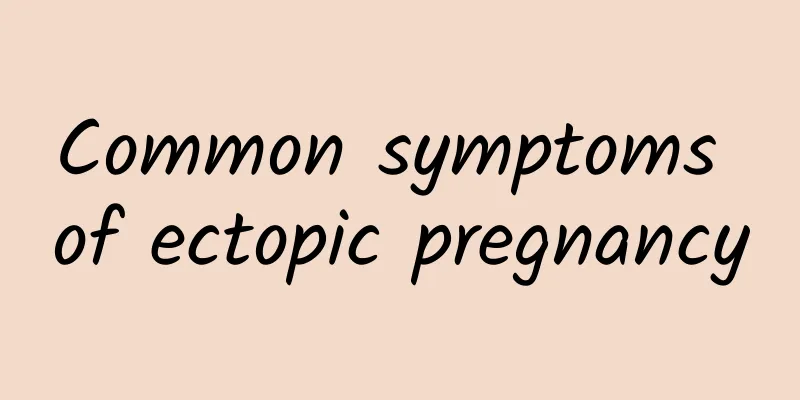How long can you live with severe cervical erosion?

|
How long can you live with severe cervical erosion? Gynecological diseases always give thousands of women a headache. For married women, the occurrence of cervical erosion is a common phenomenon. There are generally three types of cervical erosion: mild, moderate and severe. So, will severe cervical erosion affect life expectancy? How long can you live? Let's find out together below. If a woman is of childbearing age and has mild cervical erosion without any symptoms, she may not need treatment. If the erosion is moderate to severe, she must be diagnosed in a regular hospital before deciding on the treatment method. How long can you live with cervical erosion? It also depends on the degree of erosion. As long as it is treated in time, it will generally not affect the patient's life span. Cervical erosion is generally a normal physiological phenomenon, and there are no special clinical manifestations. Some people may experience contact bleeding, but this is just an individual difference in the cervix, just like some people will bleed from their teeth or mouth when they chew something hard. If there is an increase in leucorrhea, yellowing, and a peculiar smell, it is a manifestation of cervical inflammation. Cervical cysts and hypertrophy are also the result of chronic cervical inflammation. Cervical erosion generally does not require any treatment. Many current methods of treating cervical erosion are wrong. However, symptomatic cervicitis needs to be treated. Acute inflammation is treated with suppositories, and chronic inflammation can be treated with physical therapy methods such as laser or freezing. For diseases such as cervical erosion, everyone must have a correct understanding. Do not blindly treat it, nor let it develop. Once it is discovered, it is necessary to actively check, find out the cause, and actively treat it. Regular cervical examinations are necessary, not to prevent cervical erosion, but to prevent cervical cancer. The occurrence of cervical cancer is related to infection with human papillomavirus (HPV). Some patients with high-risk HPV infection are prone to precancerous lesions and cervical cancer when they are continuously infected at the squamous-columnar junction of the cervix. Since the advent of cervical smears, the mortality rate of cervical cancer has dropped significantly. The key is early prevention and treatment. It is currently recommended that women over the age of 21 should undergo a cervical smear test once a year. After the age of 30, an HPV test can be combined. If three consecutive HPV and cervical smear tests are negative, the interval can be extended to once every three years. Screening can be stopped after the age of 65. |
<<: What medicine is good for ectopic pregnancy
>>: What are the dietary precautions for functional uterine bleeding?
Recommend
The symptoms of ovarian cysts include the following:
Ovarian cysts are a common gynecological disease ...
Gynecological itching and abnormal increase of leucorrhea
Gynecological itching and abnormal increase in va...
What can you eat to abort a child? What are the dangers of aborting a child for women?
If a female friend wants to abort the child by ea...
What are the dietary taboos for vulvar itching?
For many women, vulvar itching has become a troub...
What are the symptoms of multiple uterine fibroids?
What are the symptoms of multiple uterine fibroid...
What harm does ectopic pregnancy have on the human body?
Many people still don't pay much attention to...
Women should pay attention to the causes of ectopic pregnancy
Ectopic pregnancy is a common female disease. In ...
Why do you have to do a checkup before having an abortion?
For many women, abortion is the greatest pain in ...
How much does it cost to do uterine fibroid surgery?
Regarding the question of how much it costs to ha...
3 movements to lift your buttocks and easily get a firm and perky butt
[Key points]: Flat buttocks are a pain in the hea...
What is the reason for prolonged menstruation?
What is the reason for prolonged menstruation? Pr...
Painless abortion is not the sooner the better
Women who have an unexpected pregnancy often thin...
How to care for cervical warts in daily life
In order to completely cure cervical warts, profe...
What are the commonly used drugs for chronic cervicitis in women? There are two types of drugs for chronic cervicitis in women: internal and external
Commonly used medicines for chronic cervicitis ar...
Where to treat endometrial thickening
Nowadays, more and more patients are suffering fr...









